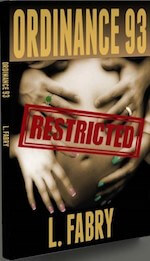Hello all, and welcome to another blog post concerning all things book review. Recently, I’ve posted a review for the excellent “Amy Lynn” by Jack July, which can be found on The Noisy Room. I’ve also written a few guest posts, most recently my 5 Excuses Women Use Not to Write for Women on Writing.
And it all got me thinking, what makes book review good enough to turn me into a school girl? For me, I think it’s a dash of breakdown of what the story is about and intended audience, aka the easy part. However, when coming up with favorable or unfavorable book reviews, the task can get hairy. No matter whether you loved, hated, or found the book to be ho-hum, it can be difficult to relay without seeming to loving or hating.
Good Part of the Book Review:
I don’t care how bad a book is, good parts can be found, even if it’s something in the unfulfilled potential arena. And if you absolutely loved a book, there’s no shame in listing each and everything you did. For books you truly love, it’s also worth pointing out if you received a review copy from the author, publisher, etc. in exchange for a review or picked it up on your own.
Bad Part of the Book Review:
Didn’t like a book? Tell us why. I greatly respect a book reviewer who isn’t afraid to intelligently AND diplomatically (or humorously) relate why they didn’t like it. I might not agree with the reviewer, which can also spur me on to read the book. Of if I agree with the critique, I’m more likely to follow the reviewer’s posts for recommendations.
Also worth noting on a book with a bad review or two is that it ensures that reviews haven’t been stacked by the author to only include favorable ones. In fact, there’s even a negative-ish review for Ordinance 93 which I found to be well thought out and useful.
Bad reviews also make good reviews (like this recent one for O93 from Bella Online) all the more uplifting.
What about you? What must a book review have for you to take it seriously?
 L. Fabry is the author of Ordinance 93, a novel set in a world where having a baby without permission is against the law and the first four people to break it. She also writes about everything from reaction injection molding to low fat recipes while indulging her need for creative outlets including novels and screenplays. Find out more on Twitter.
L. Fabry is the author of Ordinance 93, a novel set in a world where having a baby without permission is against the law and the first four people to break it. She also writes about everything from reaction injection molding to low fat recipes while indulging her need for creative outlets including novels and screenplays. Find out more on Twitter.